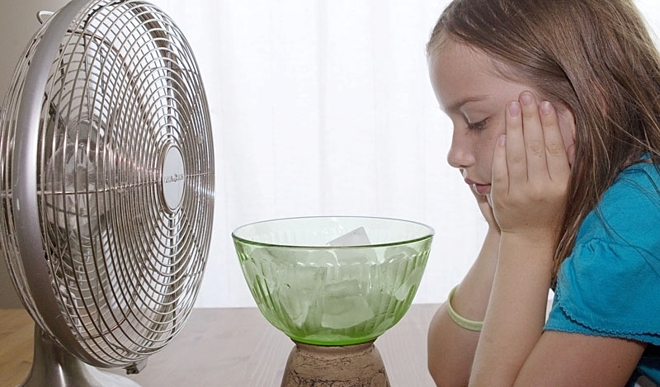4 mistakes when using electric fans in hot weather
Dr. Osamu Nishizaki, Director of Nishizaki Hospital, Japan, said that long-term exposure to air blown from a fan can affect the body's natural heat regulation mechanism, causing harm to health.
"Fans reduce the temperature of the skin surface and internal organs through blood circulation, causing fatigue, weakness, stress, headaches and loss of appetite."
You should avoid the following habits when using electric fans to avoid harming your health:
Fan blows directly on people and heads
The fan blows directly on the body at high speed and close distance, causing sweat to evaporate quickly, skin temperature to decrease, blood circulation of the body to become unbalanced, and susceptible to colds. The fan blows on the head, causing headaches, dizziness, and fatigue. Users should place the fan facing the wall or ceiling for better air circulation.
 |
Letting the fan blow directly into your face can easily cause headaches and dizziness. Photo: MArcus Redden |
Use a fan while sleeping
When sleeping, the immune system and internal organs of the human body will rest. Long-term exposure to fan wind can easily cause colds, runny nose and sore throat. You should use the fan at medium wind speed, about 2 meters away from people, rotate evenly in all directions and set the fan to turn off.
Use a fan when your body sweats a lot
When your body temperature is high, you sweat a lot due to exercise or just coming back from outside, you should not sit in front of a fan to cool down. Instead, you need to drink a lot of water, dry your body, and wait until your body temperature is stable before using a fan to cool down slowly.
Fan speed too high
The higher the wind speed, the faster the sweat on the skin evaporates, the pores become clogged, making the body feel hotter, leading to fatigue. Users should adjust the fan to a moderate speed to create a gentle breeze, enough to make the body feel comfortable.

